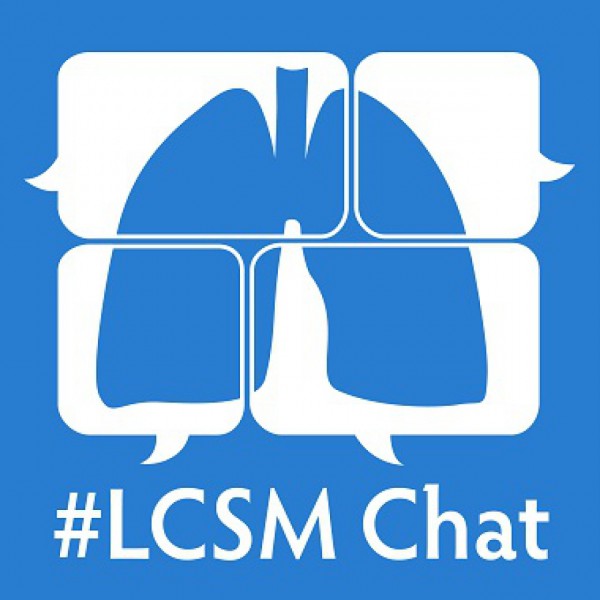#LCSM Chat Topic 3/22: Slicing the Pie–How Can Lung Cancer Patient Groups, Clinicians, and Researchers Best Work Together?
Lung cancer management has shifted from a broadly defined process to one increasingly recognized as narrow subgroups that have distinct patterns of cancer biology and optimal treatments. The first patient group to splinter into a separate branch of management was the approximately 10% of people with EGFR mutation-positive NSCLC, and the treatment options for them continue to become deeper and more complex as we gain more active agents and struggle with enviable problems like the best sequencing and protection of the brain against metastatic spread. Other “driver mutations” such as ALK and ROS1, seen in about 4% and 1% of patient tumors, respectively, now also have several treatments and/or clinical trial options available.
Each of these biology-defined subgroups of patients now has an associated online group of patients and caregivers that share information and support but are also dedicated to facilitating clinical research for their population. It is quite likely that many people participating in these online forums will become more knowledgeable about their disease than some oncologists.
What might be the role for clinicians and researchers in these patient communities? Some oncologists may not have experience or expertise in treating patients with these specific drivers. Other physicians may have a real expertise in treatment or research for that subgroup. How might their expertise be incorporated into these patient-caregiver communities? I have personally heard of some oncologists who felt that even though they were knowledgeable about the treatment options, their patient strongly advocated for another approach based on what they were told online.
Historically, online patient-caregiver groups and physician forums have had little overlap (the #LCSM community a rare exception). I think it is fair to say that online patient-caregiver groups are especially valuable for rare subgroups, where patients are geographically decentralized, and knowledge among general oncologists is limited. Patients can dedicate more time and effort to learning about their rare mutation and novel treatments than nearly any oncologist, who is typically seeing many patients with many cancer types in the course of a day. Even lung cancer specialists have limited experience with the 1-4% populations that comprise the narrowest slices of the pie.
When patient-caregiver groups, clinicians and researchers share a common goal of moving the field forward, how might online groups bring them together to ensure that the best information is being shared and amplified, while also accelerating clinical research in their focused area?
Finally, pharmaceutical companies are increasingly developing or helping to sponsor patient-caregiver communities. This can certainly provide an opportunity to foster needed support and education, but skeptics may charge that this introduces a clear opportunity for commercial bias that could lead such groups to become too much like “fan clubs” for the agents promoted by these companies.
Please join us on Thursday, March 22 at 8 PM Eastern, 5 PM Pacific for a thoughtful discussion about how online patient and caregivers groups might best works with clinicians and researchers. We’ll cover the following questions:
- T1) What are the most important benefits of online groups to patients and caregivers?? Where do research & education rank among these benefits?
- T2) Is there a role for researchers or clinicians, in online patient-caregiver groups? What issues might arise?
- T3) How might online groups best partner with researchers to accelerate research? Project by project? As long-term partners?
- T4) Is misinformation a significant concern in online patient-caregiver groups? What are some effective ways to limit misinformation?
- T5) Does pharma/industry support undermine credibility & suggest commercial bias? Could there be benefit to industry involvement?
We hope to see you in the #LCSM chat on 3/22 at 8 pm Eastern Daylight Time (5 pm Pacific). If you’re new to tweet chats, please read our primer “To Participate in #LCSM Chat.”


You must be logged in to post a comment.